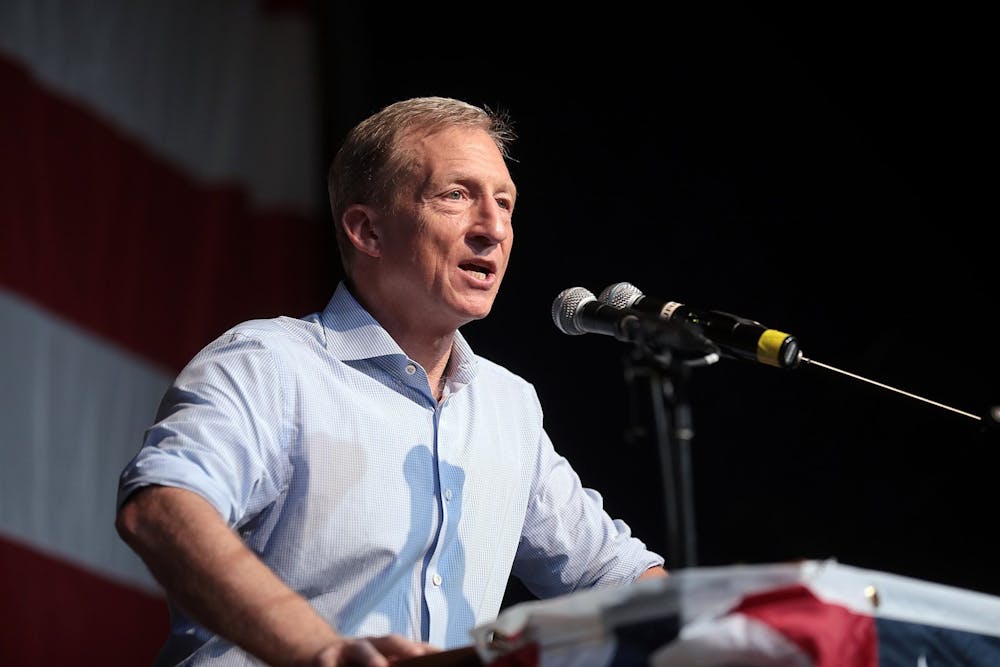After the results for the General Assembly came in on Nov. 5, Gov. Ralph Northam, D-Va., proudly declared that Virginia “is a blue state!” The Commonwealth — once a Republican stronghold — completed its lurch left as it handed legislative power to the Democratic party. With the Governor’s Mansion and General Assembly now under Democratic control, Virginians can expect sweeping changes to the Commonwealth’s laws and economy.
While Republicans and conservatives can lament over the recent erosion of their political power, the conservative movement needs to act to ensure that right-leaning voices escape suppression in future elections. Virginia’s ideological makeup reveals inconsistencies with its representation, and Republicans cannot abandon the state despite their string of losses over the past decade. In order to strengthen popular democratic representation, Republicans should lead campaign finance reform efforts in the state to combat the recent impact that big money interests have played in the political process in Virginia.
General Assembly elections rarely attracted national attention before these last elections. National politics dominate news cycles, and local races often fail to garner the interest of even those whom they most impact. However, progressive billionaires pounced on Virginia’s lax campaign finance laws — among the loosest in the country — to pour money into General Assembly races that they held no stake in. Special-interest groups financed by Michael Bloomberg poured contributions into competitive districts — tipping the balance of democracy in favor of those with the most money. Champions of the progressive movement often claim to fight against big money interests, but these elections have illustrated that Virginia Democrats directly benefited from Super PACs and out-of-state contributions.
Billionaires George Soros and Tom Steyer similarly poured huge amounts of resources into local races. Total campaign contributions in state races totaled a $82 million — making these elections the most expensive in Virginia history. Individuals like Bloomberg, Soros and Steyer should not have such an outsized voice in Virginia's political system. They aren’t raising families, opening businesses or even living in the Commonwealth. Their only interest in these elections stems from a selfish desire to advance their own agendas and maintain their positions of influence.
Not only did out-of-state big money tip the balance of democracy in these past elections, however, but so did former President Barack Obama’s Attorney General Eric Holder. His organization, the National Democratic Redistricting Committee, claims to work for fair districting and to fight against gerrymandering, but in reality, Holder wants to strengthen Democratic control over state legislatures. The NDRC is a clearly partisan group and has funded legal challenges to Republican leaning legislative maps. While his organization has targeted states with histories of Republican-led gerrymandering, the NDRC has ignored states like Maryland and Oregon, in which Democrats have drawn district lines in their own interests. Gerrymandering serves as an example of another bipartisan problem, but Holder’s impact in Virginia only further exemplifies how outside influence has helped Democrats.
Court rulings have upheld campaign donations as being protected by freedom of speech. Such decisions affirm the rights of individuals of self-expression through campaign contributions. I understand that logic, as it is always advisable to err on the side of allowing speech rather than suppressing it. Perhaps the only way to counter the power of big money is through a grassroots effort to reject Super PAC money and candidates who take it.
However, Democratic government demands that representatives are accountable to all their constituents — and big money is a poison to our government. While such issues are glaring with the recent Virginia elections, the power the rich wield over elected officials is a bipartisan problem. Until voters exert necessary pressure, those who benefit most from the system will never change it.
Ultimately, party control over political institutions ebbs and flows over time. The Democrats should be congratulated in their success, and conservatives in the General Assembly should look for every opportunity to work with them in the interest of the state. Conservatives need to think carefully about their past decade in Virginia and how their influence has steadily diminished. Strengthening ties to traditional supporters and making inroads in new communities must remain the priority of leaders and voters across the state.
While challenging the systems that have enabled outsider influence to affect Virginia’s political climate is important, connecting voters to compelling messages affirming the core values of freedom and personal agency will organically strengthen the conservative movement here. But, no party can win the war of ideas if we continue to allow big money to distort our elections — both Democrats and Republicans must address this.
Tom Ferguson is an Opinion Columnist for The Cavalier Daily. He can be reached at t.ferguson@cavalierdaily.com.







